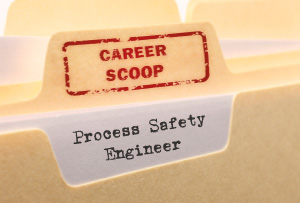 In a nutshell, what do you do?
In a nutshell, what do you do?
I assist with the design of chemical process plants to make them safer; writing specifications, investigating equipment and processes, and making sure that all hydrocarbons are contained within the process (e.g. making sure they do not escape, causing fire and explosion).
I’m also on-site during construction and commissioning, to ensure that process safety is not compromised.
Why did you choose this career?
Like most engineering careers, the job found me – or better to state, I drifted into the job, but like most jobs, I probably had the right skills to do the job. I chose engineering right out of high school, my friends were doing engineering and I had a good role model (i.e. my father was an engineer).
What path did you take into it?
I started in Project Engineering (mechanical) but then moved to Materials Engineering before moving to Australia. I joined Shell and eventually ended up in Process Engineering; I had to re-train, but all the training was provided by Shell (you need to have a Process Engineering background to go into Process Safety).
What, in your opinion, is the best bit of being a Process Safety Engineer?
What you do is important; if you get it wrong, people get killed – i.e. plant explosions etc, like you often hear about in the USA. I like the variety; there’s always something different, and always some new problem to solve every day. I enjoy seeing something where you were involved in the design, being built in real life.
Every job has its downsides. What do you think are the worst bits?
The long hours, working in remote places, and the travel can get you down. Being away from family.
Is it what you expected when you first started out?
I had a pretty good idea what to expect (helps to have an engineer as a parent). My dad took me on site visits as a little kid so I already had a good idea what it would be like (engineering in general, not process safety engineering).
What do the public least understand – or mistake – about what you do?
The public only see the mistakes when a company gets it wrong, and the perception is that process safety is poor in these instances.
What kind of people tend to do well in this kind of career?
People that are good at math and science, but the best people have a mixture of left / right brain talents. These right brain people are better at visualising the “whole” problem, instead of getting stuck doing some detailed analysis. The best process safety engineers need to have breadth of experience across many engineering disciplines.
Finally, any advice you’d offer to people looking to get into this line of work?
Take all the hard math and science at school, and enrol in engineering at university – it does not matter what type of engineering you start with, as most engineers will do a variety of roles and acquire a breadth of knowledge. By way of illustration, job titles I’ve held across my career include:
Materials Engineer, Project Engineer, Workshop Engineer, Rotating Equipment Engineer, Mechanical Engineer, Process Engineer, R&D Engineer (designing Textile machines), Civil Engineer, Construction Engineer, Risk Engineer, Technical Risk Engineer, Commissioning Engineer / Commissioning Superintendent, and Process Safety Engineer.
Some engineers even do some radical changes in their career.



